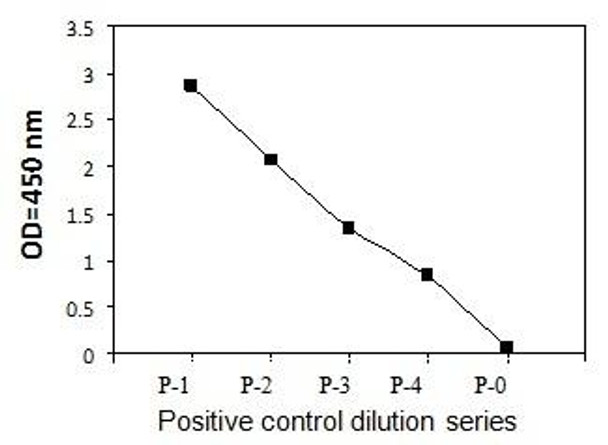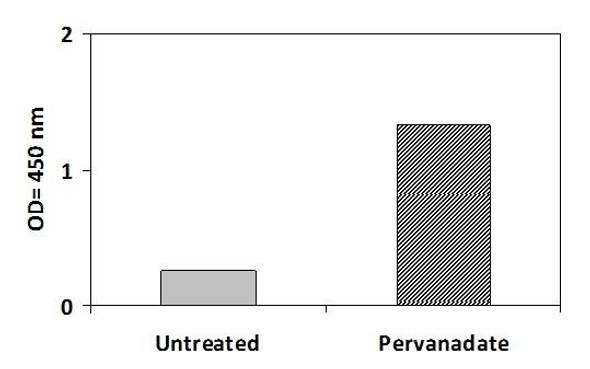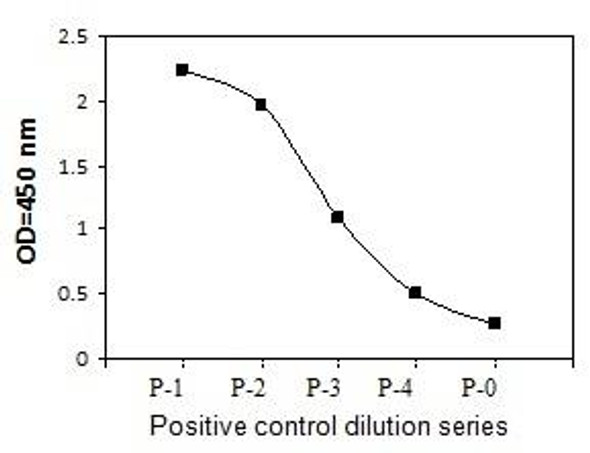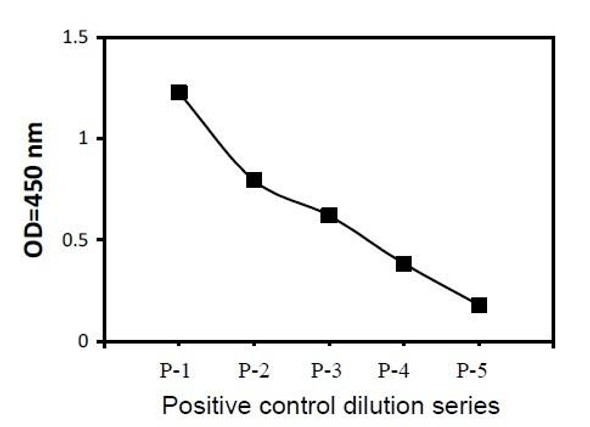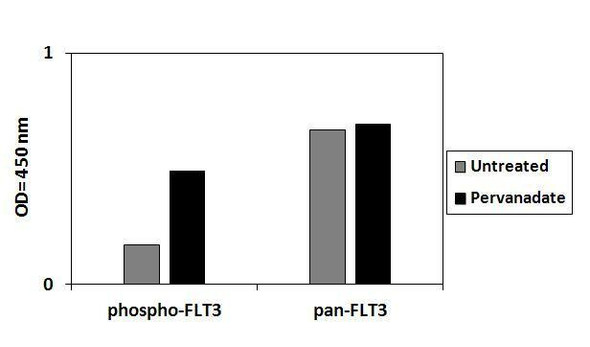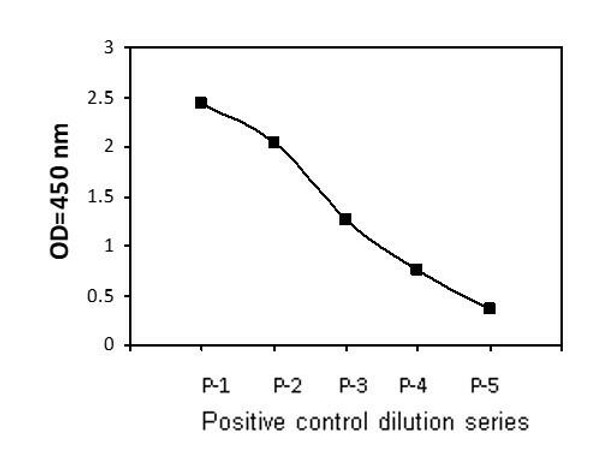Description
Human Phosphotyrosine MCSFR PharmaGenie ELISA Kit
Assay Genie Phospho-M-CSF R ELISA kit is a very rapid, convenient and sensitive assay kit that can monitor the activation or function of important biological pathways in cell lysates. By determining phospho-M-CSF R in your experimental model system, you can verify pathway activation in your cell lysates. You can simultaneously measure numerous different cell lysates without spending excess time and effort in performing a Western Blot analysis. This Sandwich ELISA kit is an in vitro enzyme-linked immunosorbent assay for the measurement of human phospho-M-CSF R. An anti-M-CSF R antibody has been coated onto a 96-well plate. Samples are pipetted into the wells and phosphorylated and unphosphorylated M-CSF R present in a sample is bound to the wells by the immobilized antibody. The wells are washed and biotinylated anti-phosphotyrosine antibody is used to detect only tyrosine-phosphorylated protein. After washing away unbound antibody, HRP-conjugated streptavidin is pipetted to the wells. The wells are again washed, a TMB substrate solution is added to the wells and color develops in proportion to the amount of phospho-M-CSF R bound. The Stop Solution changes the color from blue to yellow, and the intensity of the color is measured at 450 nm.
| Product SKU: | SBRS1889 |
| Size: | 96T |
| Application: | The antibody pair provided in this kit recognizes Human Tyrosine-Phosphorylated-MCSFR. |
| Uniprot: | P07333 |
| Gene ID: | 1436 |
| Gene Names: | CSF1R / FMS |
| Pathway: | Tyrosine Kinase Family |
| Synonyms: | Macrophage colony-stimulating factor 1 receptor (CSF-1 receptor) (CSF-1-R) (CSF-1R) (M-CSF-R) (EC 2.7.10.1) (Proto-oncogene c-Fms) (CD antigen CD115) |
| Target Species: | Human |
| Compatible Sample Types: | Cell Lysates, Tissue Lysates |
| Design Principle: | Sandwich-based |
| Method of Detection: | Colorimetric |
| Quantitative/Semi-Quantitative: | Semi-Quantitative |
| Range: | |
| Sensitivity: | |
| Recommended Dilution: | |
| Storage/Stability: | Upon receipt, the kit should be stored at -20 °C. Please use within 6 months from the date of shipment. After initial use, Wash Buffer Concentrate (Item B), Assay Diluent (Item E), TMB One-Step Substrate Reagent (Item H), HRP-Streptavidin (Item G), Stop Solution (Item I) and Cell Lysate Buffer (Item J) should be stored at 4 °C to avoid repeated freeze-thaw cycles. Return unused wells to the pouch containing desiccant pack, reseal along entire edge and store at -20 °C. Reconstituted Positive Control (Item K) should be stored at -70 °C. |
- Pre-Coated 96-well Strip Microplate
- Wash Buffer
- Biotinylated Anti-Phosphotyrosine Antibody
- Stop Solution
- Assay Diluent(s)
- Positive Control Sample
- Lysis Buffer
- Streptavidin-Conjugated HRP
- TMB One-Step Substrate
Other materials and equipment required:
The Assay Genie Human Phosphotyrosine MCSFR PharmaGenie ELISA Kit (SBRS1889) will require other equipment and materials to carry out the assay. Please see list below for further details.
- Distilled or deionized water
- 100 ml and 1 liter graduated cylinders
- Tubes to prepare sample dilutions
- Protease and Phosphatase inhibitors
- Precision pipettes to deliver 2 ul to 1 ml volumes
- Adjustable 1-25 ml pipettes for reagent preparation
- Benchtop rocker or shaker
- Microplate reader capable of measuring absorbance at 450 nm
- Prepare all reagents and samples as instructed in the manual.
- Add 100 ul of sample or positive control to each well.
- Incubate 2.5 h at RT or O/N at 4 °C.
- Add 100 ul of prepared primary antibody to each well.
- Incubate 1 h at RT.
- Add 100 ul of prepared 1X HRP-Streptavidin to each well.
- Incubate 1 h at RT.
- Add 100 ul of TMB One-Step Substrate Reagent to each well.
- Incubate 30 min at RT.
- Add 50 ul of Stop Solution to each well.
- Read at 450 nm immediately.
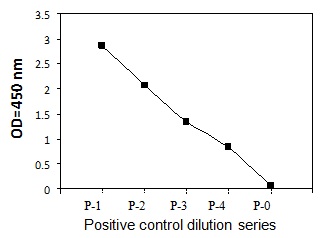 | Jurkat cells were treated with Pervanadate at 37°C for 10 min. Solubilize cells at 4 x 107 cells/ml in lysis buffer. Serial dilutions of lysates were analyzed in this ELISA. |

